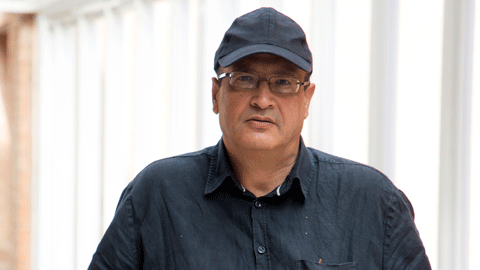Talk by Ali Lmrabet on the difficulties of practising journalism in Morocco
Ali Lmrabet Morocco is a key defender of press freedom in Morocco. On 23 September, at the Faculty of Communication Studies, he will talk about the difficulties he has faced throughout his career in practising journalism in his country. This talk, which is open to the public, falls within the course "International Journalism".

Lmrabet, who began a career as a diplomat before becoming a journalist, has been editor of Le Journal, Demain (and its version in Arabic, As-sahifa), Demain magazine (the country's main French-language satirical weekly) and Doumane, always practising this profession from a position of independence and commitment that has repeatedly brought him into conflict with the Moroccan authorities.
Le Journal, Demain, As-sahifa and Demain magazine were all closed down by the government. Three years later Lmrabet was sentenced to four years in prison, leading him to go on hunger strike until he was officially pardoned in 2004. Since 2005 he has been banned from practising journalism in Morocco and he recently went on a new hunger strike in Geneva until he was allowed to renew his passport and return to Morocco. Currently, he is working on the launch of a new magazine.
Lmrabet has dealt with topics that the media in Morocco usually avoid, such as corruption in politics, the repression of the Polisario Front, cases of disappearance and torture at the hands of the authorities and poverty in the Rif. He was also the first person from the Maghreb to interview a Prime Minister of Israel (Binyamín Netanyahu in 1998). He has received many awards, such as the the Protagonists of Journalism award, the Reporters Sans Frontières - Fondation de France award, the José Couso Award for Press Freedom, and the 17th Solidarity Award from the Catalonia Institute for Human Rights.